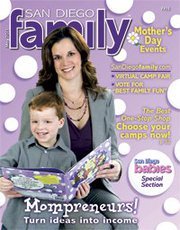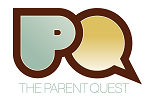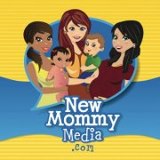Head Start Program
The potential for learning is greatest during early years of a childs life, therefore, every possible learning opportunity should be provided to children at the earliest possible age. The basic responsibility for early education is in the home.
The early education learning environment, whether in the home or in a school, should provide a rich variety of activities that will foster physical mental, emotional, and social development.
Activities should include both individual and group learning experiences using a variety of concrete experiences. Each childs growth level should be the basis for the extension of his/her learning.Preschool is only part of the federally funded Head Start child development program. Programs are free and designed to serve low-income children and their families. Head Start is found in virtually all urban areas and in many suburban and rural communities as well.
Many preschools are sponsored by churches, synagogues, and other religious organizations.
The Montessori program
Philosophy
Montessori school programs emphasize the importance and connection of all living things, and the need for each person to find meaningful work and his or her own place in the world. Children learn about other cultures, animals, and plants in addition to reading, language, and mathematical skills.
Teachers take their lead from each child, whom they believe will learn at his or her own pace. Montessori programs encourage a childs sense of independence: Montessori likes to involve parents closely in their childrens education.
In the classroomÂ
The Montessori curriculum focuses on five areas:
Practical life:Â Children learn how to tie their shoes and put on their coats, prepare their own snacks and drinks, go to the bathroom without help, and clean up after themselves if they spill something.
Sensory awareness education:Â Exercises make sure children use all five senses to learn.
Language arts:Â Children are encouraged to express themselves verbally and are taught to trace and recognize letters as a precursor to learning reading, spelling, grammar, and handwriting skills.
Mathematics:Â Children learn about numbers through hands-on learning using concrete materials.
Cultural subjects:Â Children learn about other countries, animals, history, music, movement, science, and art.
All the disciplines are tied together in complementary ways. Toys and other developmentally appropriate learning materials are laid out in the classroom so a child can see what her choices are and then pick a task called “”work”” according to her interests. When theyre done, children put their work back on the shelves and move on to something else. The daily schedule allows time for children to play alone or in groups.
The Waldorf Approach
According to Rudolf Steiner, founder of the first Waldorf school, a person is made up of three aspects: spirit, soul, and body. Waldorf programs around the world aim to stimulate and develop these three elements in young children by immersing them in nurturing surroundings. Kids are encouraged to engage in creative free play rather than watching TV and videos and playing computer games because those activities get in the way of using all five senses to absorb and actively engage in life.In the classroomÂ
Waldorf early childhood teachers try to create a comfortable, homelike environment that offers children plenty of opportunities to freely imitate what they see and to indulge in creative play. Daily activities range from painting, coloring, singing, and reciting poems to modeling with beeswax, baking bread, building houses out of boxes, sheets, and boards, and dressing up and pretending to be parents, kings, and magicians.
Waldorf programs tend to be more group-oriented than those at Montessori schools. If your child thrives on order and rhythmic repetition, this may be the best option. But a Waldorf education can benefit almost any child, says Patti Regan of the Waldorf Early Childhood Association of North America.
Other Philosophies
This the most common type of preschool philosophy in the United States. A developmentally appropriate program tends to emphasize the different areas of a preschooler s development- which are physical, cognitive, emotional and social. The classroom is set up with a “”hands-on”” approach. In this type of program there is a mixture of both self-directed and teacher directed activities. The teacher may have a curriculum or activities that fit the childs age and level of development however, the child may lead the play and the teacher will join in. For example, a child may show an interest in the kitchen area and the teacher will take that opportunity to talk about cooking or mealtime. There is usually a schedule that is followed each day, but may be looser in the morning with “”free play”” and later may be more structured with circle time or a group activity. These types of programs usually shy away from activities that seem strictly academic, and believe that structure isnt the best way for a preschool child to learn.Reggio Emilia Philosophy:Â
This curriculum was developed in Reggio Emilia, Italy. It combines some characteristics of both developmental programs and Montessori. The central element in this approach is the emphasis on a childs symbolic language such as drawing, dramatic play and writing. This is considered an extension of the “”whole language”” approach. In a Reggio Emilia classroom the environment plays a key role, as it is often considered another “”teacher””. In the classroom there is a conscious use color, natural light and space. Children are taught to value and respect their environment. Another important factor is parental involvement. School and home are considered a partnership. The classroom is very child directed and projects tend to follow a childs interest. It is unusual to find a time limit on any one project. This philosophy believes that projects are developed over time and children should be able to go back and revisit their work. This is believed to develop forms of self expression.
Cooperative Preschools:Â
Parent Co-operative Preschools are formed by groups of parents with similar philosophies who organize to provide their children with a quality preschool experience. The school is administered and maintained by the parents on a non-profit, non-sectarian basis. Parent Co-operative Preschools are owned and operated by the parent members. Each family volunteers to do a job related to the business operation of the organization as well as serving as an educational assistant in the classroom on a rotating basis. The basic philosophy is that children and parents go to school together with guidance from a qualified teacher. The focus is on child development. The teacher plans the curriclum and also helps to educate the parents about teaching and parenting methods. The parents often contribute their talents to help enrich the classroom. This creates a triangular relationship where the children, parents, and teacher all learn from one another.



















